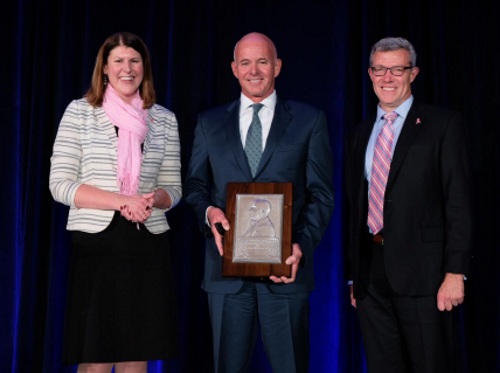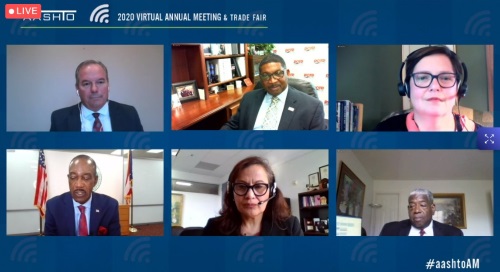Engineering firm HDR hosted a knowledge session at the American Association of State Highway and Transportation Officials annual meeting that examined how several state department of transportation executives are incorporating the “fundamental pillars” of civil rights – equity, diversity, and inclusion – more deeply into their operations.
“Our work impacts virtually everybody every day,” explained Bernie Arseneau, HDR’s highways and roads director, who served as the moderator for the November 12 session.

“For that reason, we have a responsibility to provide a transportation that supports all people regardless of race, color, gender, nation of origin, or income,” he explained. “We must look carefully at benefits provided to historically marginalized groups in order to provide mobility services that serve all segments of the population. This way, the community helps shape the infrastructure rather than the other way around – with the result being a better quality of life for all of our citizens.”
Shawn Wilson, Ph. D. – secretary of the Louisiana Department of Transportation and Development and elected AASHTO’s 2020-2021 vice president; the first black person to hold that position – stressed that it is also about making state DOTs representative of the communities they serve.
“We have to integrate equity, diversity, and inclusion into the metrics of our departments,” he stressed. “They must be ingrained into what we do every step of the way. It is also important how we manage those issues within the four walls in our larger state DOT family, to create ‘cross-fertilization’ within our agencies. That means, for executives, we have to be willing to know and read the audience as well as the people across the table.”
Jack Marchbanks, director of the Ohio Department of Transportation, added that not only are state DOTs in a position to address past wrongs, they can also help attract economic disadvantaged people to well-paying jobs within the transportation industry – and industry that is growing short of workers to begin with.
“It’s about going beyond just ‘compliance’ with civil rights but committing to it,” he explained. “It is about going out to vocational and middle schools in under-represented communities so they understand this [the transportation industry] is a viable career. We must have courage to do those right things; to go from compliance to commitment.”
Marchbanks added that it also incumbent on state DOT executives to “have an open door” with leaders across all of the communities served by state transportation agencies. “What is valuable in my role is that I knowing what is happen on front lines of the communities – I know where the opportunity is coming from,” he said.
Irene Rico, associate administrator for civil rights at the Federal Highway Administration, supported that approach.
“One thing that is must be consistent is that message from the top,” she explained. “That is when I see more success, when the collaboration within transportation is more organic, versus when civil rights works alone on an island. Like infrastructure, safety, and operations, civil rights must be at the table when transportation projects are discussed.”
Margaret Anderson Kelliher, commissioner of the Minnesota Department of Transportation, added that one of her goals is to ensure that civil rights work does not become isolated the way FHWA’s Rico described.
“Working in the office of civil rights can be lonely/isolating work in the state DOT – that’s why we are promoting the head of that office into a senior leadership discussion so equity and diversity is not an afterthought,” she explained. “Typically, we’ve asked for their [civil rights office] opinion late in the [transportation project] process. Now we work to get that earlier into the process.”
Kelliher added that weaving civil rights into the “transportation narrative” when her agency is advocating for funding, projects, or just talking to the public is critical as well.
“We are all in this together,” she said. “Transportation is what connects us all across the country and this is why civil rights must a part of it.”
 AASHTO Annual Meeting
AASHTO Annual Meeting


